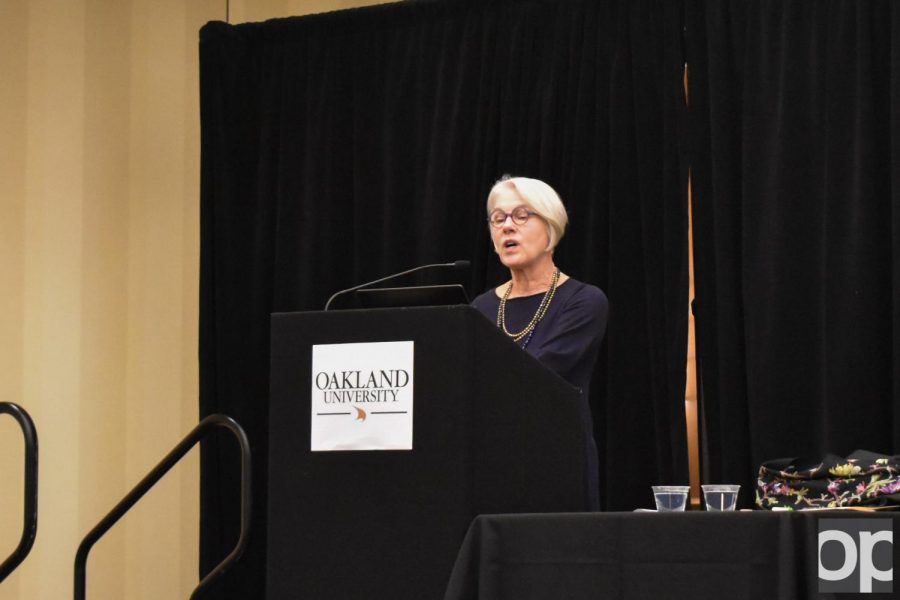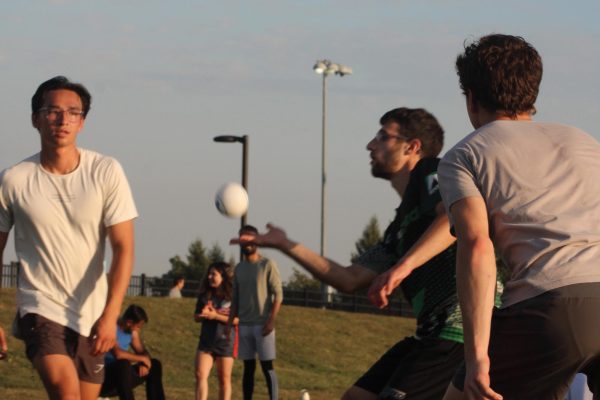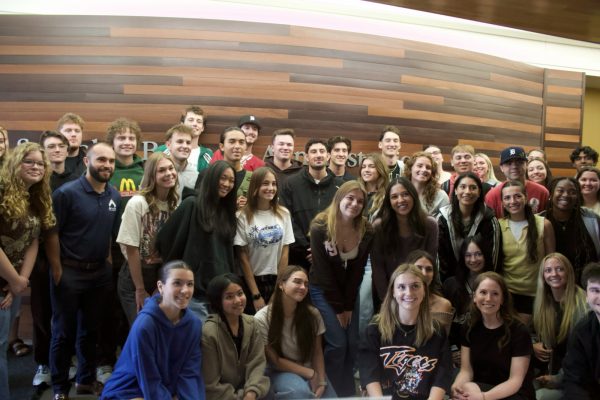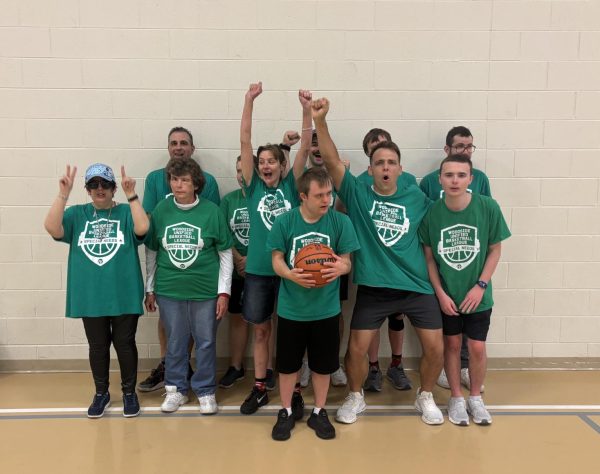The Past and Future of Human Communities and the disabled
Rosemarie Garland-Thompson spoke on “The Future of Humanity: How We Shape Human Communities,” and specifically, the communities and culture of people with disabilities on Thursday, Feb. 1.
The lecture was held as part of the College of Arts and Sciences’ unity and diversity program led by Kathleen Pfeiffer, professor of English. Garland-Thompson, beyond being a professor at Oakland University, is currently in the process of fulfilling her graduate degree in bioethics.
Her argument throughout the lecture was focused on three separate points about modern societies: shaping human communities, liberal eugenics and making as well as supporting disability culture.
According to her paraphrase of the eugenic definition, it is “the science of improving a human population by controlled breeding to increase the occurrence of desirable heritable characteristics.”
The first point was history in regards to old eugenics from the 19th century until 1945. It included the study of what was considered “good genes.” This mainly included what Nazi Germany did with its “disabled.” Hitler described these people as “unworthy and economically draining.”
The famous legal case, Buck v. Bell, was a key part in the theory of eugenics coming into the United States.
Eugenics Archive reported “in the Buck vs. Bell decision of May 2, 1927, the United States Supreme Court upheld a Virginia statute that provided for the eugenic sterilization for people considered genetically unfit. The Court’s decision, delivered by Oliver Wendell Holmes, Jr., included the infamous phrase ‘Three generations of imbeciles are enough.’”
It was also claimed it did not violate the 14th Amendment of due process.
The next theory Garland-Thompson brought up was new eugenics from 1946-today. This housed more of the liberal eugenics.
“Liberal eugenics, [is] the moral obligation to create children with the best chance of the best life,” she said.
Garland-Thompson mentioned how scientists and those in bioethics are trying to fix genes so people can have what they think is the best quality of life. Iceland was discussed as they eradicated down syndrome according to Garland-Thompson.
Human rights covenants were brought up frequently throughout the presentation. The definition Garland-Thompson wrote was covenants “offer understanding of all human beings and are born equally in dignity and in rights.” This was also a part of the Universal Declaration of Human Rights in 1948.
More modernly, the ADA Act (Americans with Disabilities Act of 1990 and 2009) made it so people with disabilities are treated fairly, and often times it comes into play when building, so there are ADA accessible bathrooms and elevators. This Act received bipartisan support from Congress and branches into Oakland and the new residence hall, Hillcrest Hall.
“Change the environment not the person, protect rather than regularize, abide rather than improve, accommodate rather than eliminate,” Garland-Thompson said.
She would like attitudes to change because there will always be more work to do. A few examples would be increasing access, building communities and cultivating leadership.
“The future of humanity is being shaped actively through implementing disability rights covenants,” Garland-Thompson said. “Disability rights covenants strengthen support for disability culture, presence and awareness across all institutions.”









